Quick Web Guide
Here is a detailed guide on configuring the URL Prefix and AppLink. By following these steps, you can easily implement deep linking in your app and track link performance through built-in analytics.
This is the AppLink landing page displayed when no URL prefix is configured.
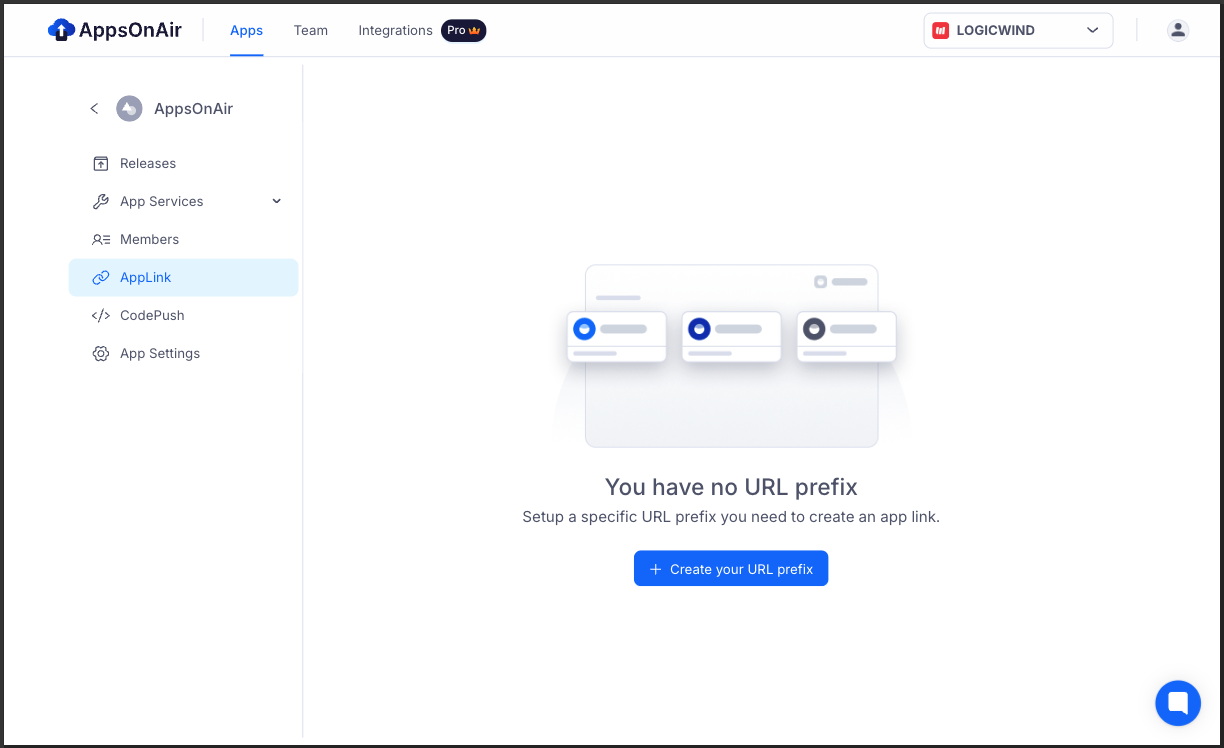
URL Prefix Setup
To configure the URL prefix for your applink, you can choose between the default Appsonair domain or a custom domain based on your preference:
Default Domain Setup
Select No in the Custom Domain section and enter your desired subdomain in the provided text field.
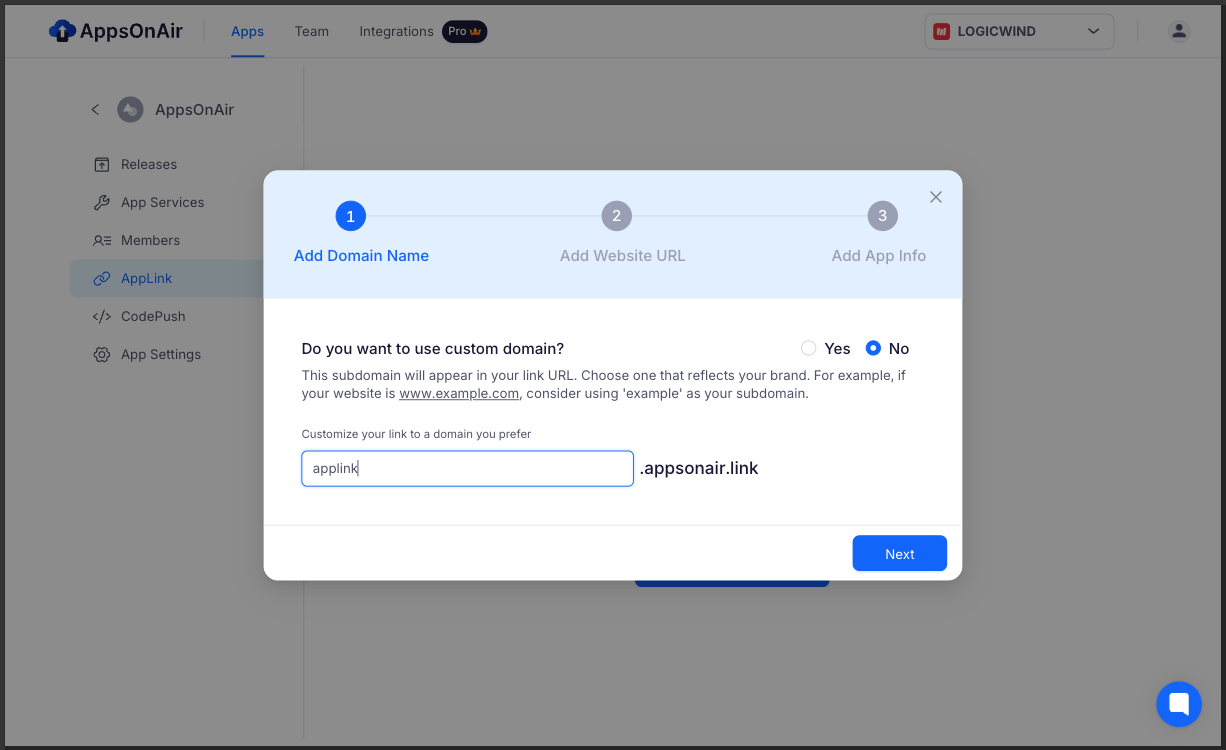
Custom Domain Setup
Select Yes in the Custom Domain section, then enter your full custom domain in the text field and proceed by clicking Next.
Ensure the proxy is disabled for your custom domain.
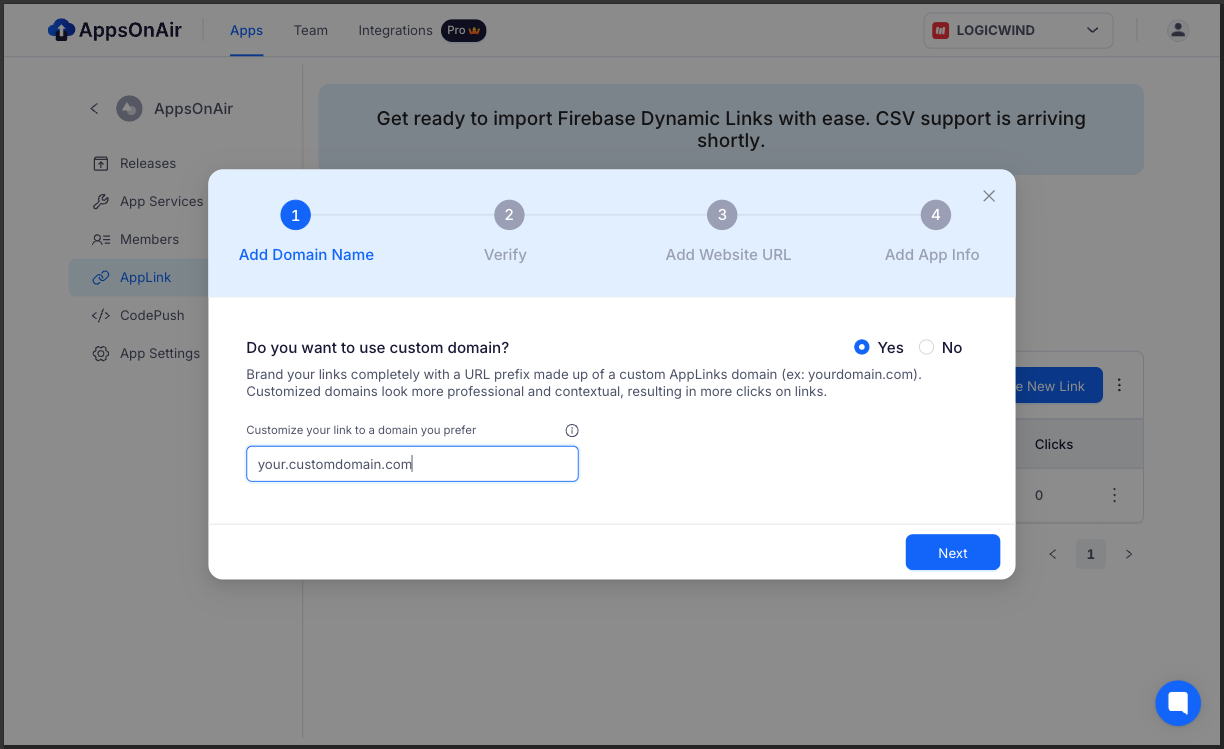
Custom Domain Verification
Add the A record and TXT record to your domain's DNS to complete custom domain verification.
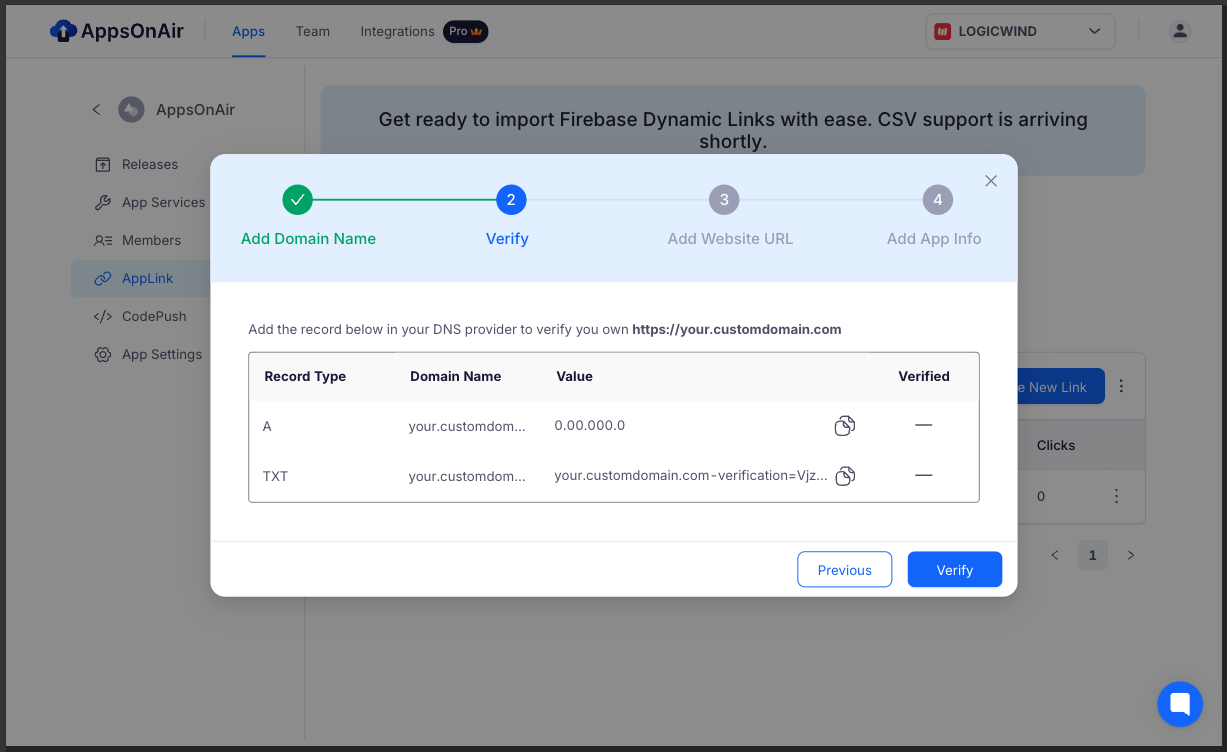
Once the domain is successfully verified, you'll see the interface shown below. You can now proceed with the next steps by clicking the Next button.
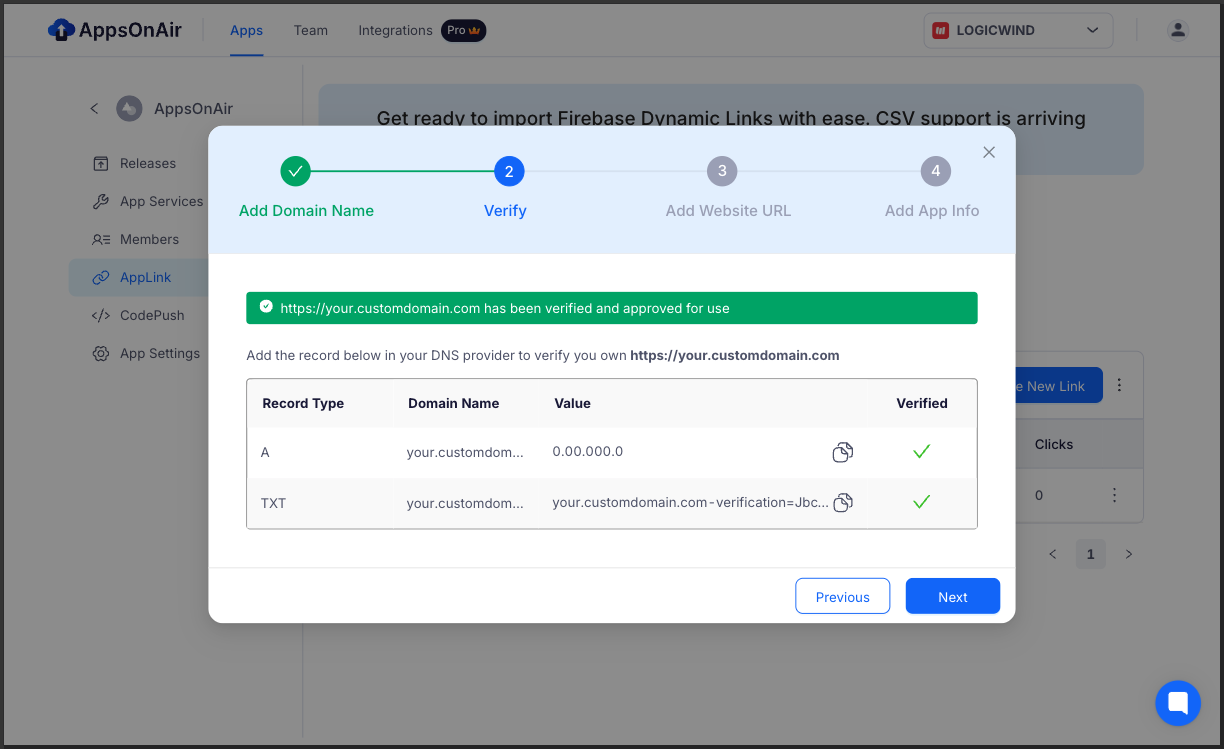
Setup Website URL
Enter your website URL here. This will be used as the default fallback URL, meaning users will be redirected to this link if no fallback URL is provided during link creation.
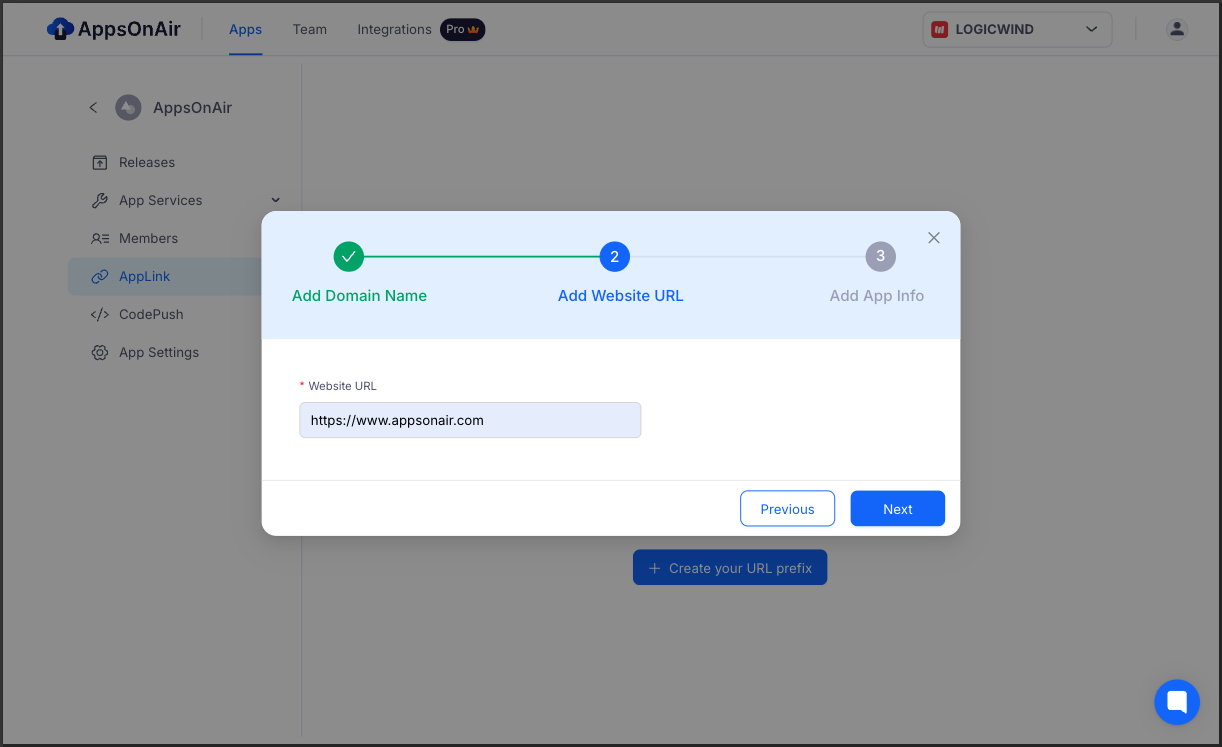
Setup Your Apps
Configure your Android and iOS apps by filling in all the required fields, such as Team ID (iOS) and SHA-256 (Android), and other necessary details. This ensures your links work correctly across both platforms.
iOS
How to Find Your Apple Team ID
- Log in to your Apple Developer Account.
- Click on the Membership Details tab.
- You’ll find your Team ID listed under the “Team ID” section.
- It’s a 10-character alphanumeric string (e.g., YOURTEAM00).
If you don’t have an iOS app, select No in the iOS section. Then, enter the URL where you want iOS users to be redirected when the AppLink is clicked.
If you don’t provide a URL here, users will be redirected to the default fallback URL configured in the previous step.
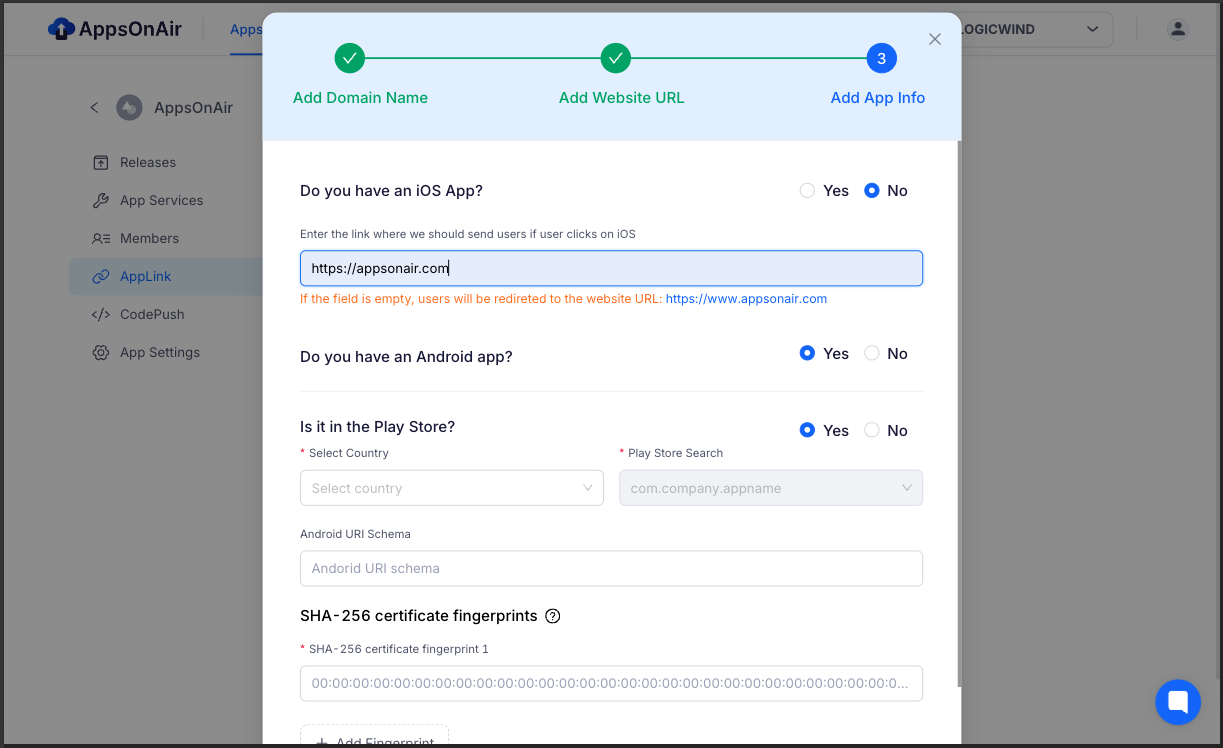
If you have an iOS app, select Yes. You’ll then be asked whether your app is available on the App Store If your app is available, simply search for it using the dropdown and select it. Then, enter the required details to complete the setup.
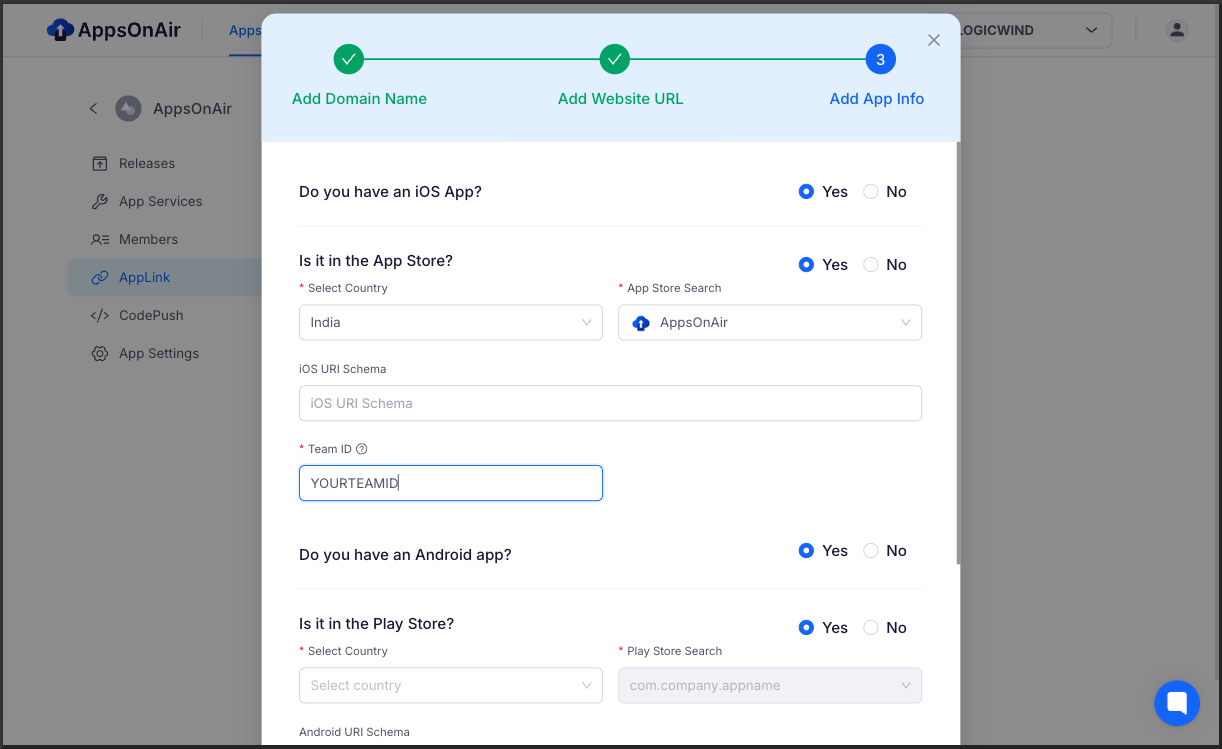
If your app is not on App Store, select No. You’ll need to manually enter the required details just fill in the fields.
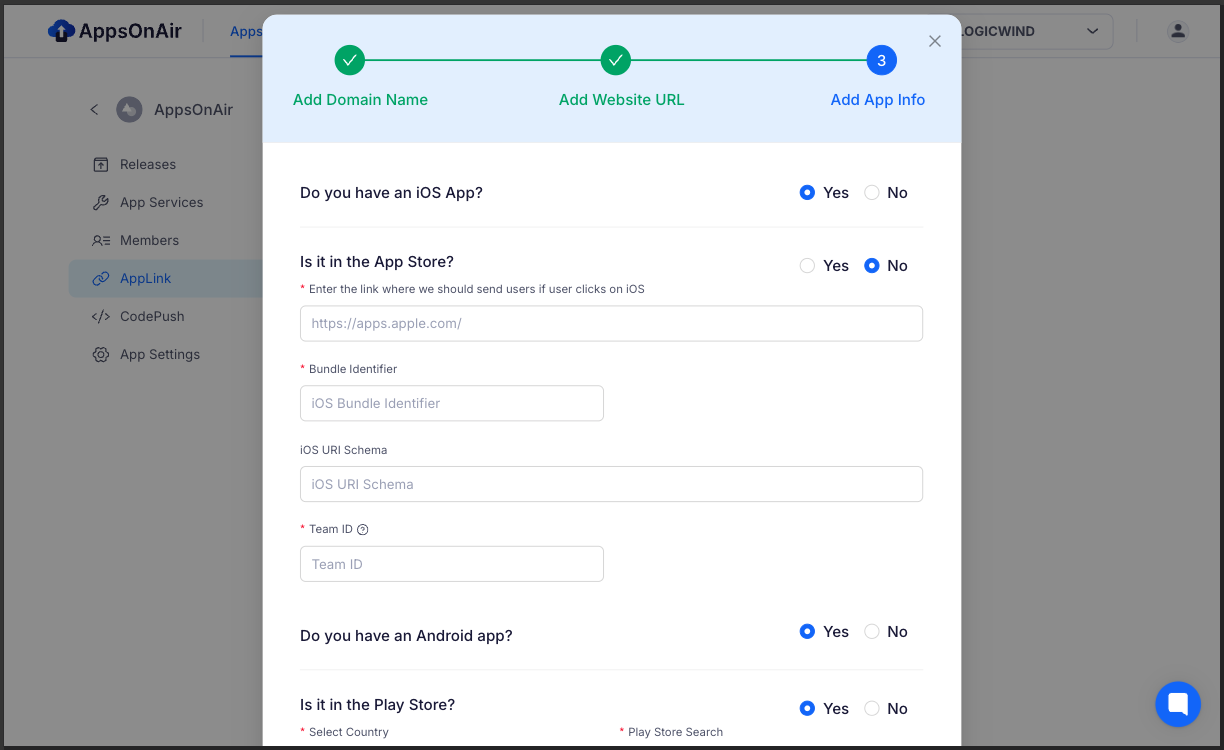
Android
Just like with iOS, select whether you have an Android app. If not, enter the fallback URL where users should be redirected when the AppLink is clicked on an Android device.
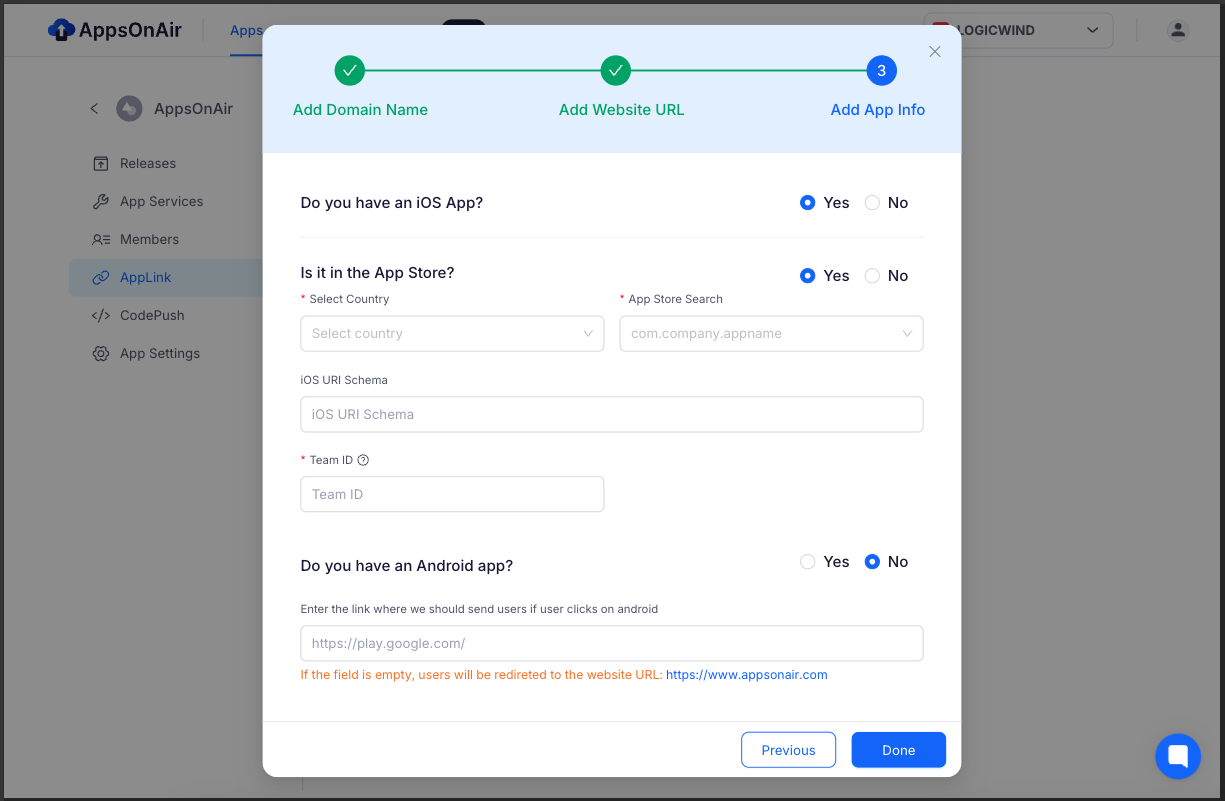
If you have an Android app, select Yes. You’ll then be asked whether your app is available on the Google Play Store If your app is available, simply search for it using the dropdown and select it. Then, enter the required details to complete the setup.
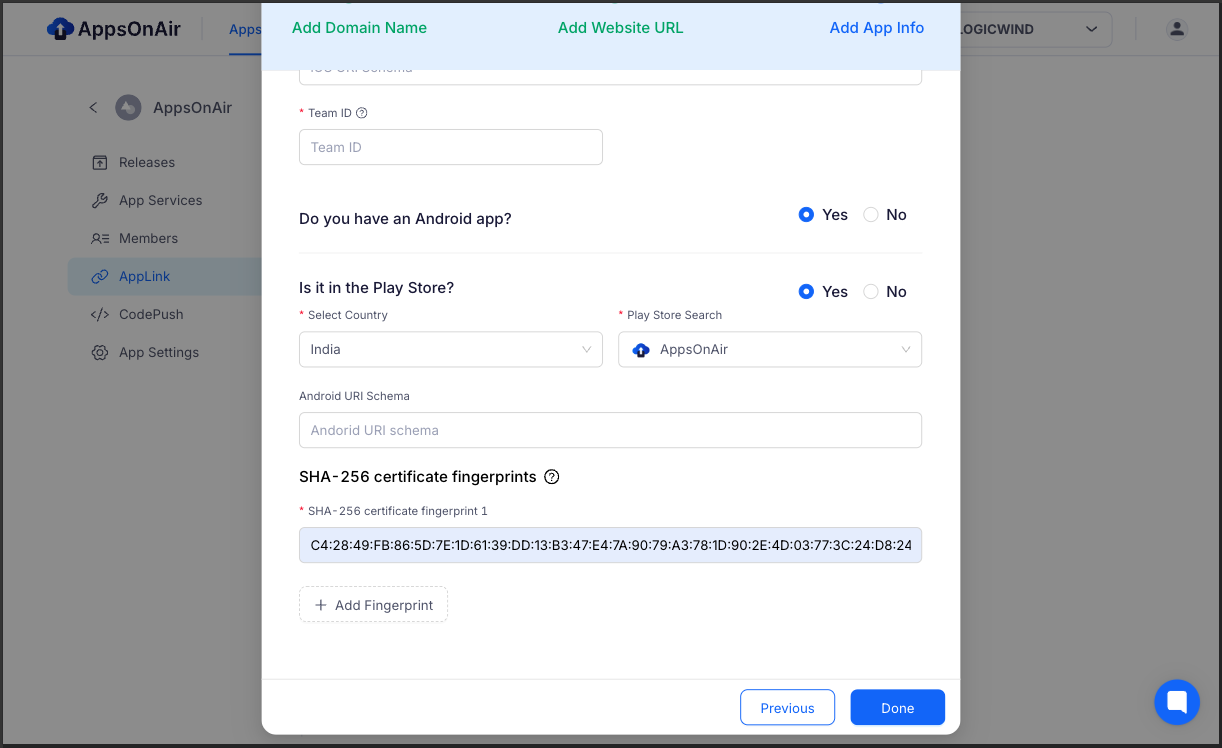
If your app is not on Play Store, select No. You’ll need to manually enter the required details just fill in the fields.
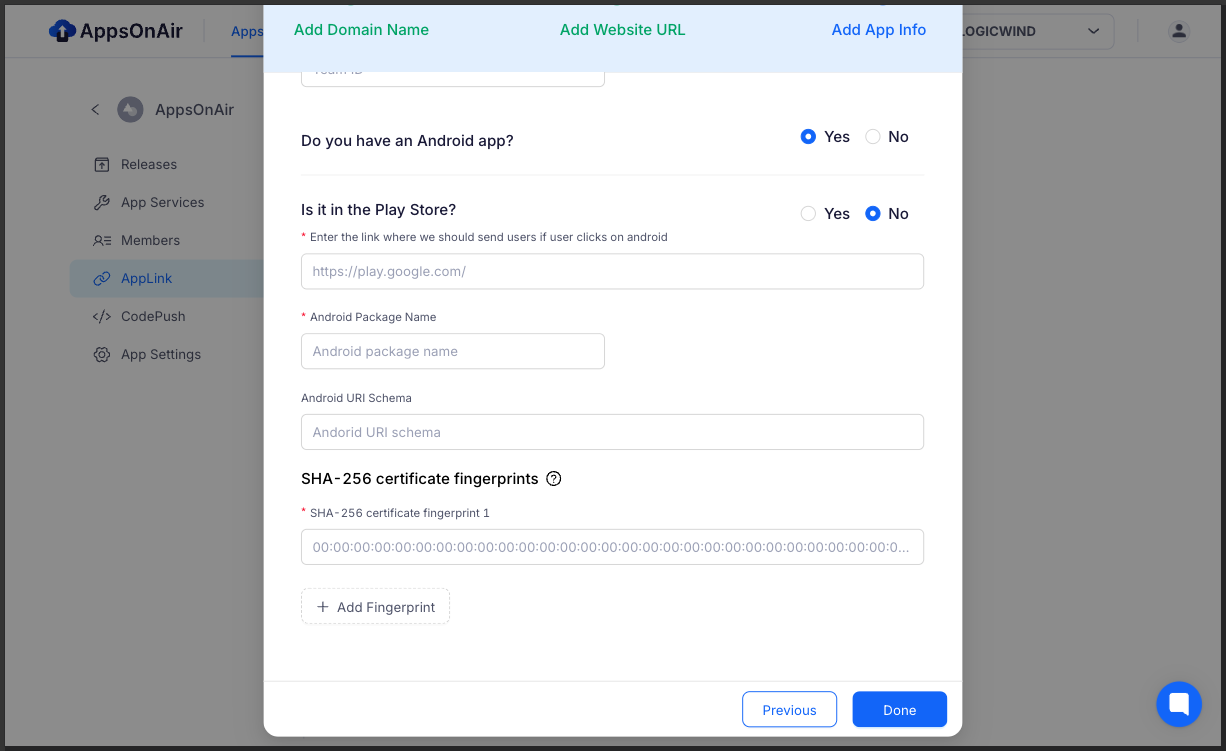
How to Get Your SHA-256 Fingerprint
Using Android Studio
- Open Android Studio.
- Go to View > Tool Windows > Gradle to open the Gradle panel.
- Navigate to: YourApp > Tasks > android > signingReport
- Double-click signingReport.
- Check the Run window for the SHA-256 value.
Using the Command Line
Debug Keystore
keytool -list -v -keystore ~/.android/debug.keystore -alias androiddebugkey -storepass android -keypass android
Release Keystore
keytool -list -v -keystore path/to/your/keystore.jks -alias your-key-alias
Make sure to replace path/to/your/keystore.jks and your-key-alias with your actual keystore path and alias.
If you want to set up a custom URI scheme for your AppLink, you can enter it in the URI Scheme section. This option is available for both Android and iOS configurations.
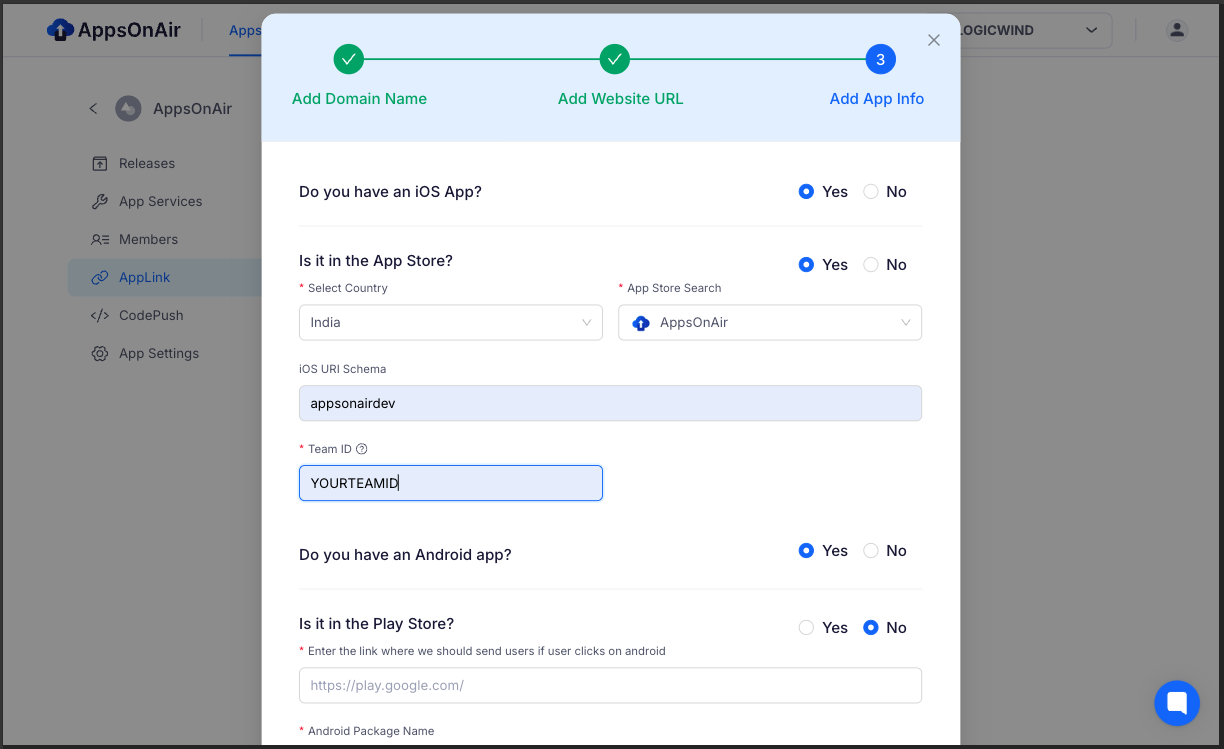
Once you've finished configuring everything, click the Done button. You’ll then see the interface shown below, and you can now use this URL configuration to create your AppLinks.
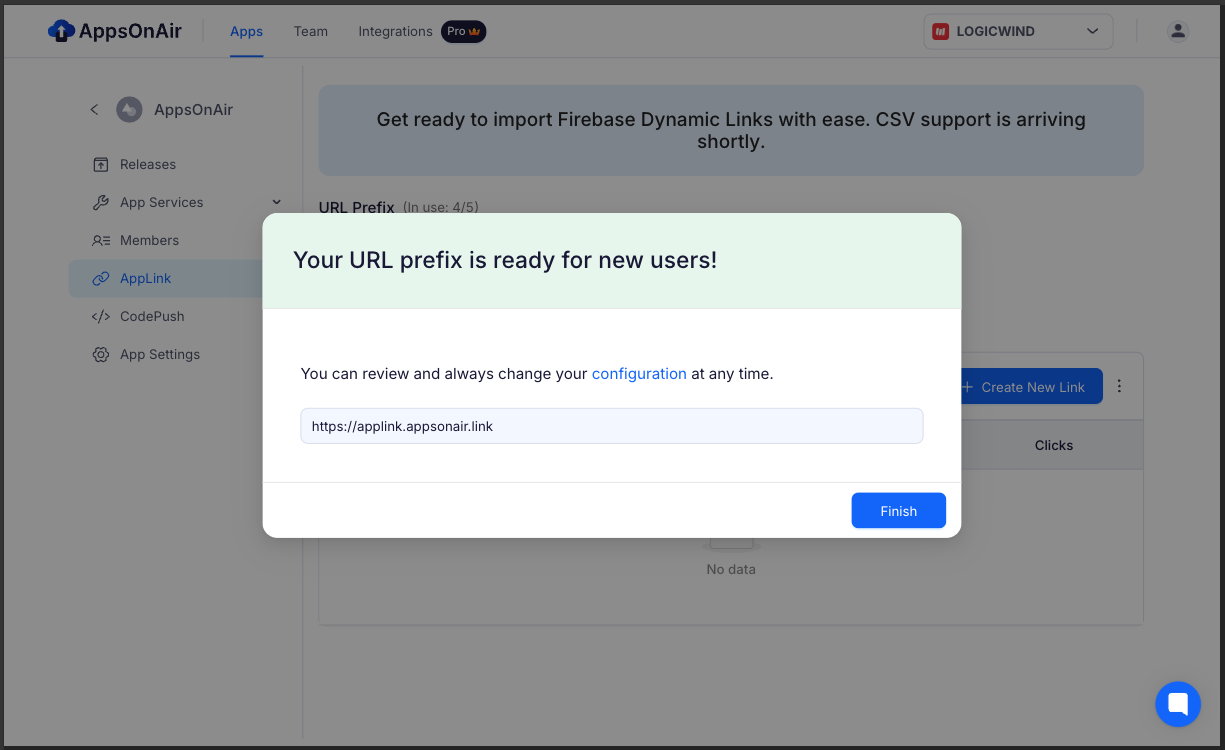
Verifying Your URL Prefix Setup
Once your URL Prefix is configured, you can verify the domain status for deep linking by checking the following URLs:
Android
https://your-domain/.well-known/assetlinks.json
iOS
https://your-domain/.well-known/apple-app-site-association
If the setup is successful, you’ll see your app details listed in the respective files at these URLs.
Create AppLink
Once your URL configuration is complete, click Create New Link to start creating your AppLink. You can then use it for deep linking and other related services.
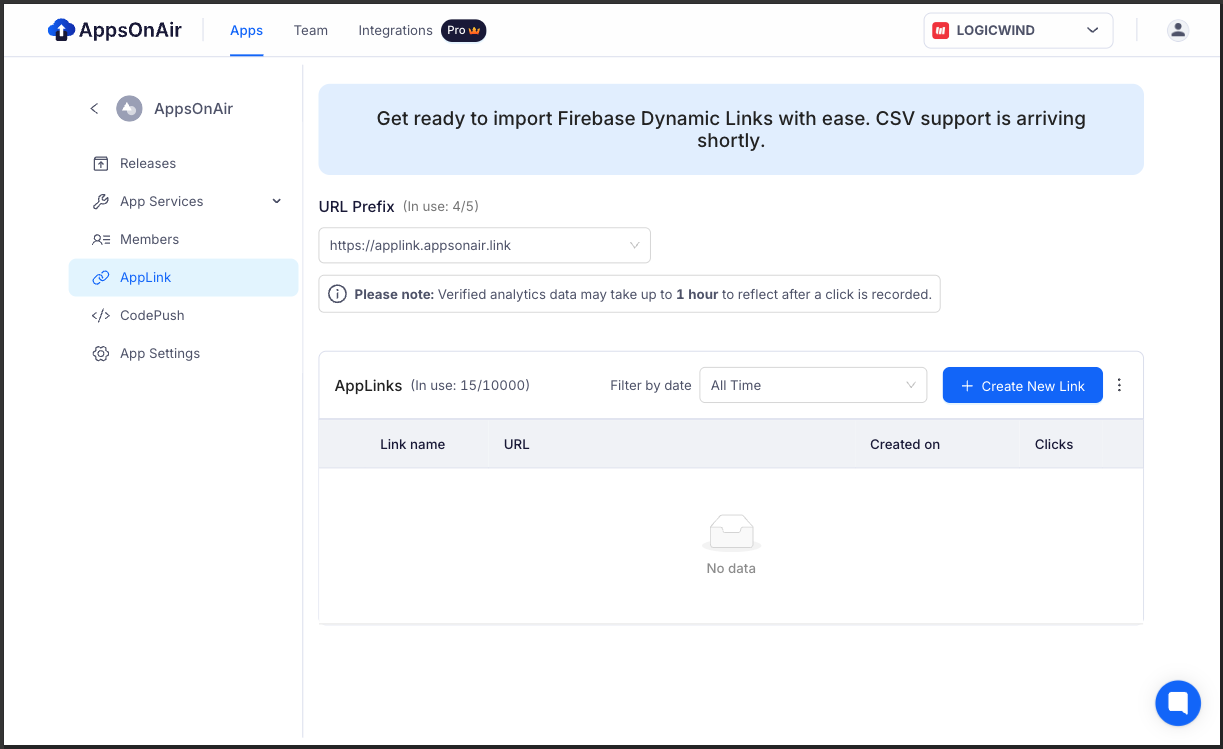
Enter the URL suffix, which will appear at the end of your AppLink, then click the Next button to continue.

Enter the AppLink name and the Deep Link URL, then click the Next button to continue.
The Deep Link URL will open in the browser on desktop devices. On mobile devices, it will open in the browser if you’ve chosen that option even if the app is installed.
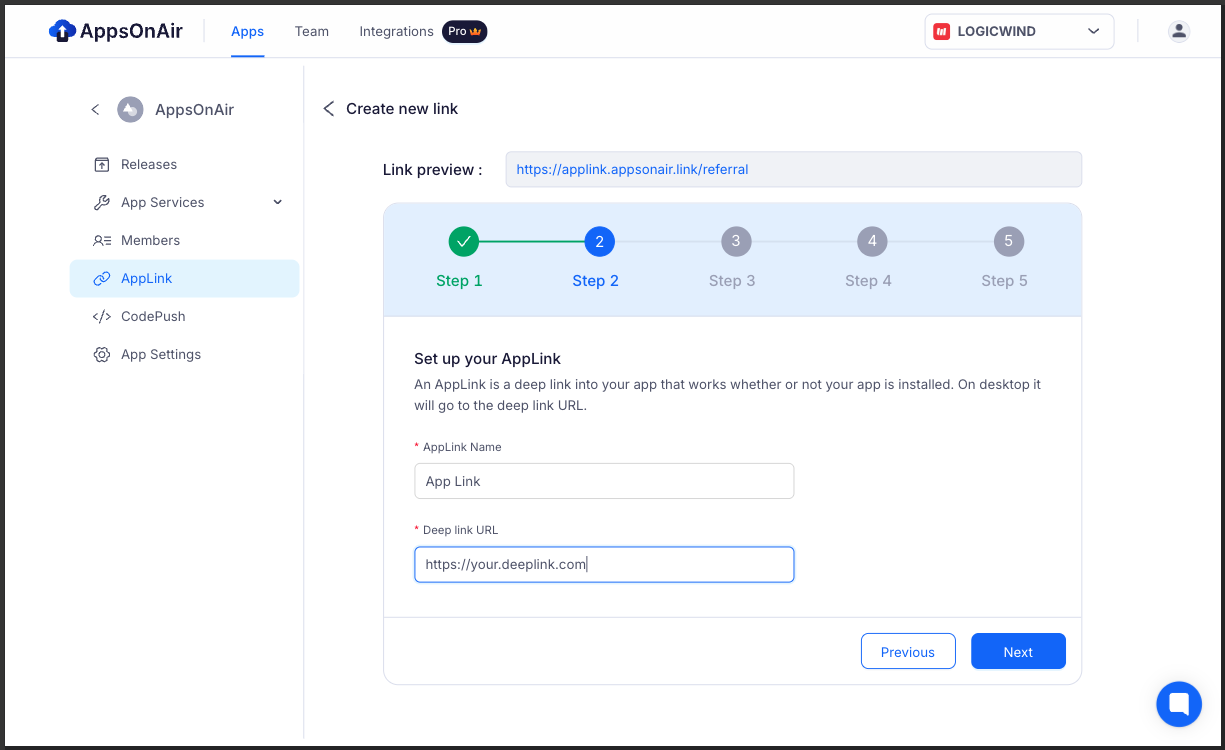
Configure the link behaviour of your iOS app
Select Open Deep Link in Browser if you want the AppLink to open in a web browser. In this case, it will use the default fallback URL you provided during the URL configuration setup.
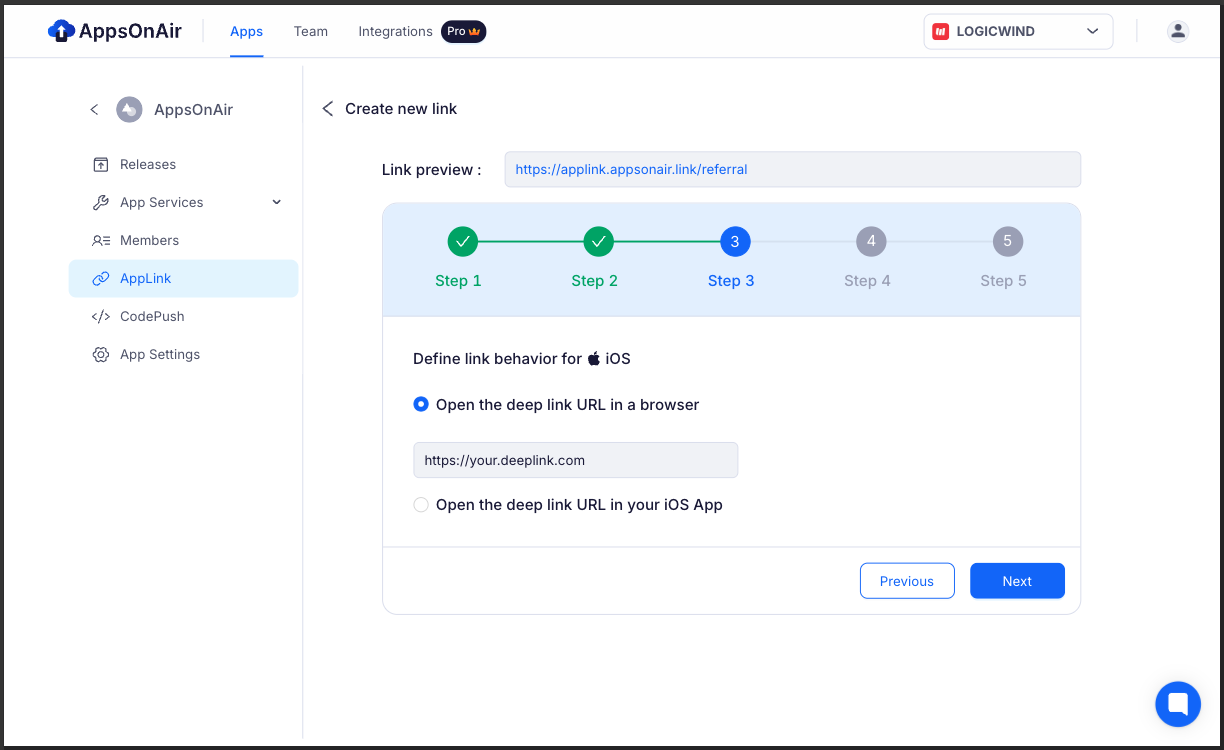
Select Open Deep Link in Apple App if you want the AppLink to open directly in your iOS app.
If the app is installed, the link will open in the app. If the app is not installed, the user will be redirected to the App Store. If you prefer to redirect users to a different page instead of the App Store, enter a URL in the Custom URL field. This URL will be used when the app is not installed.
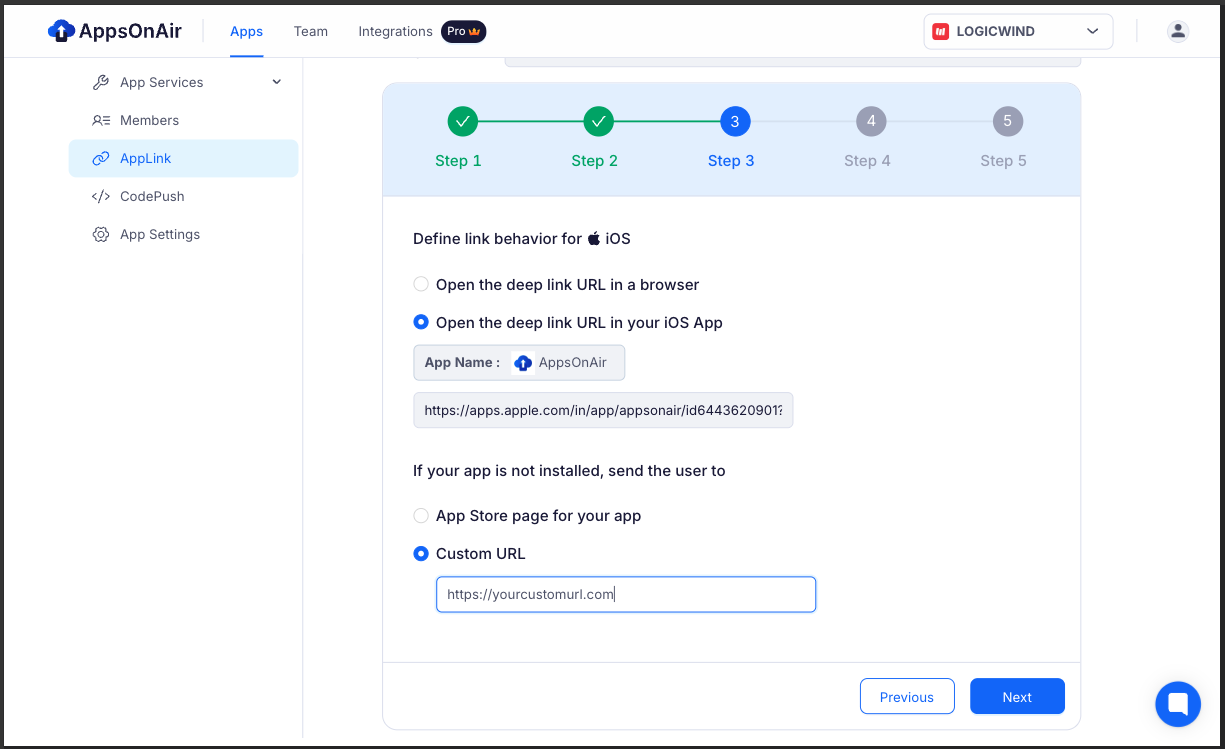
Configure the link behaviour of your Android app
Select Open Deep Link in Browser if you want the AppLink to open in a web browser. In this case, it will use the default fallback URL you provided during the URL configuration just like it works for iOS.
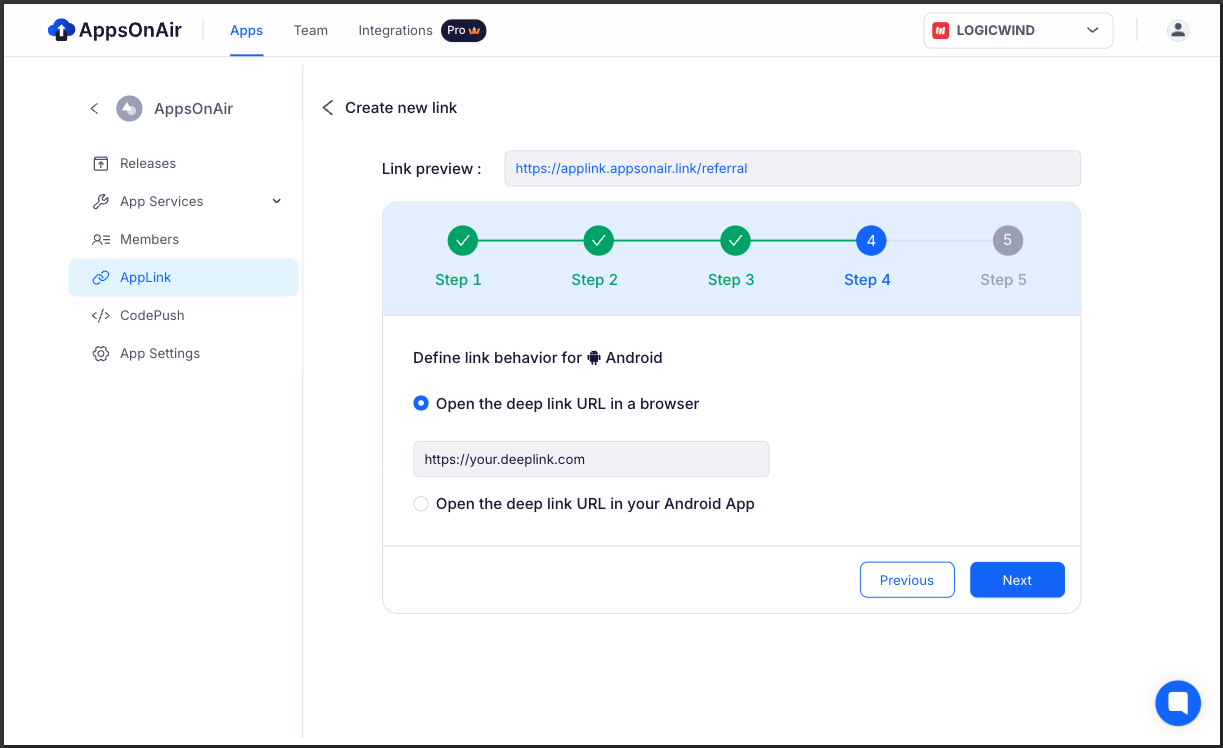
Select Open Deep Link in Android app if you want the AppLink to open directly in your Android app.
If the app is installed, the link will open in the app. If the app is not installed, the user will be redirected to the Google Play Store. If you prefer to redirect users to a different page instead of the Play Store, enter a URL in the Custom URL field. This URL will be used when the app is not installed.
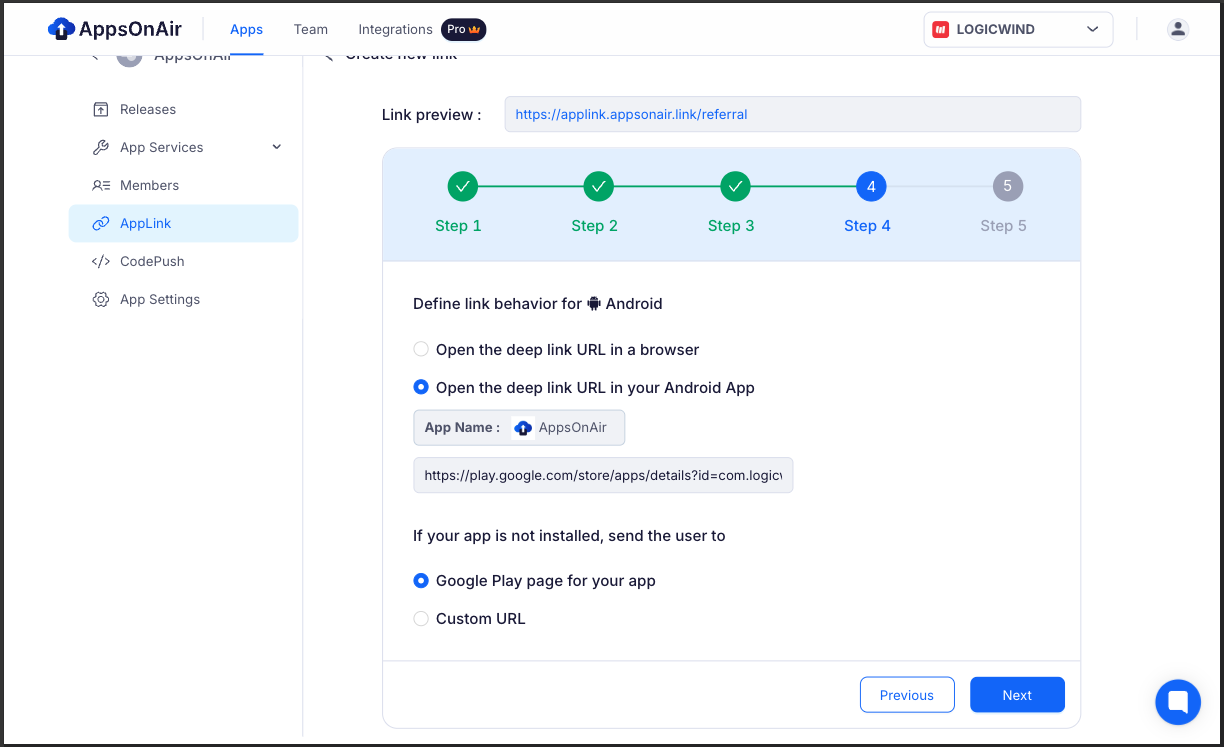
In the final step, enter the meta details for your link. If you want to display a preview (with an image) when the link is shared, simply fill in the Title, Image URL, and Description fields. Then, click the Create button to generate your AppLink and start sharing it with others.
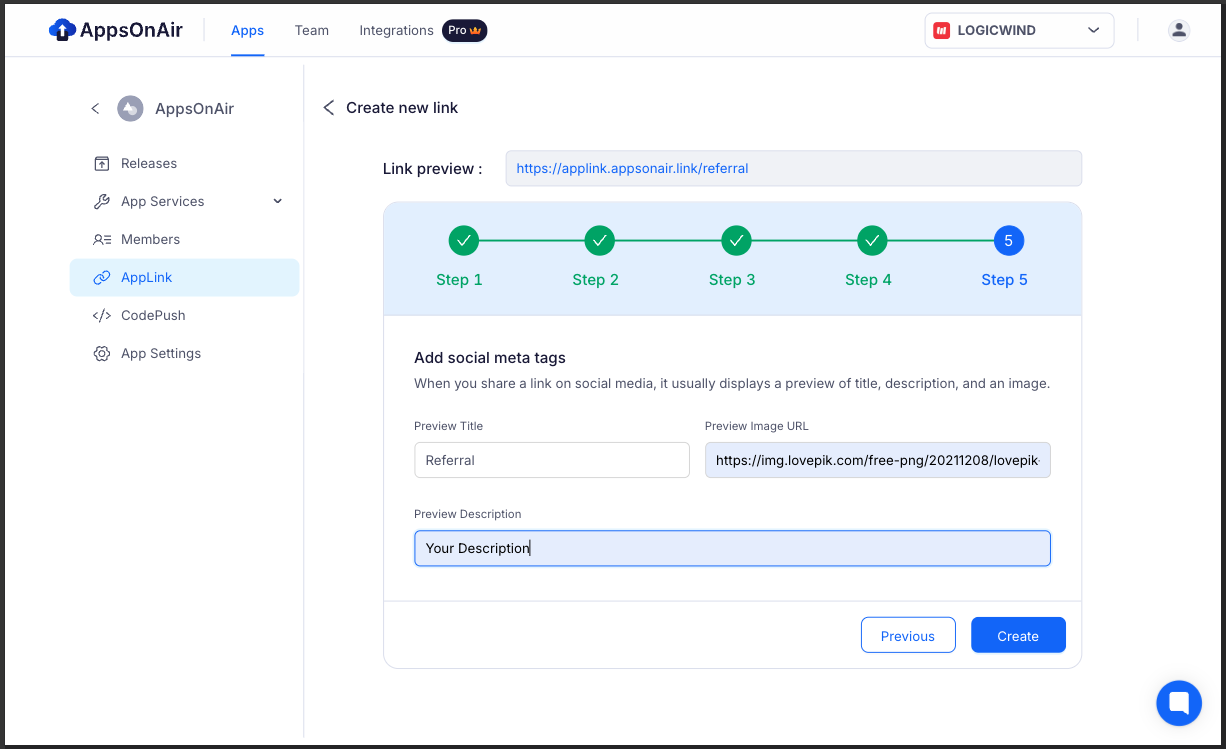
Analytics Dashboard
You can track your AppLink links performance using analytics dashboard for more details visit analytics page